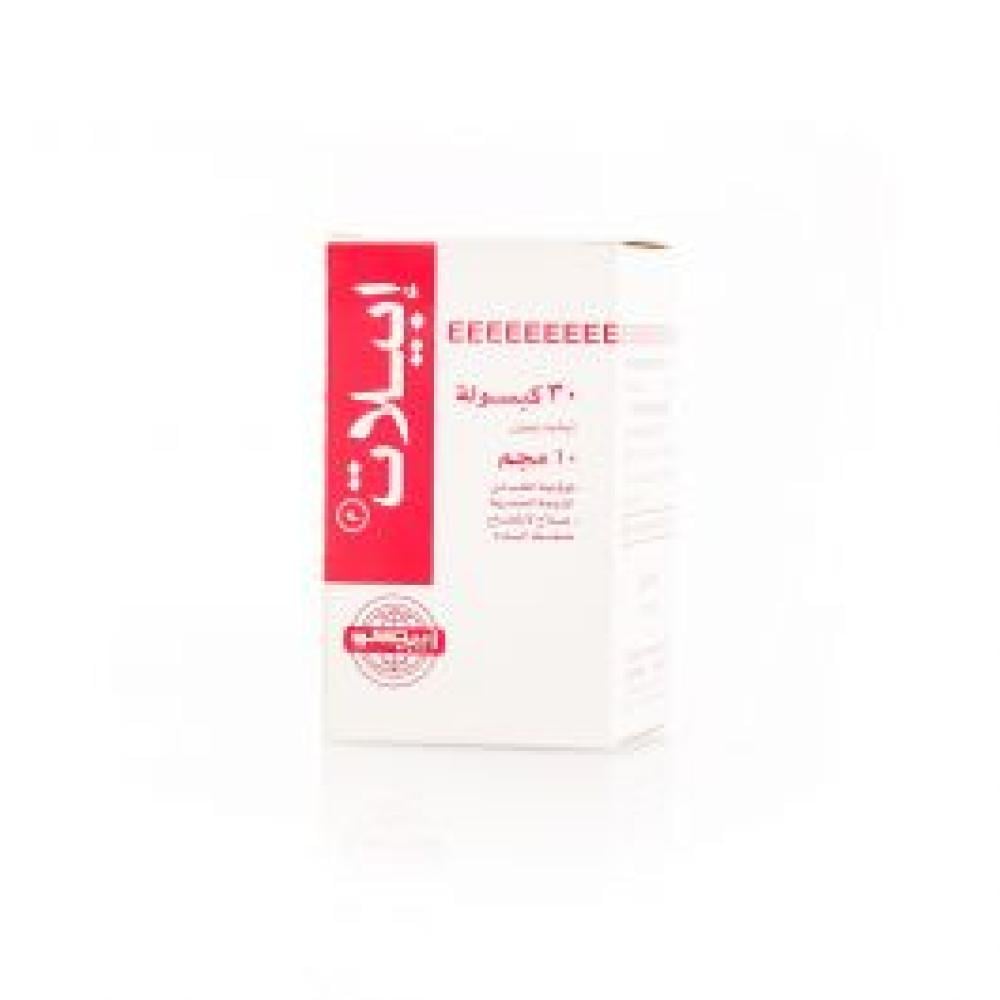Nifedipine 30 mg tablets
What is nifedipine and what is it used for?
- Nifedipine belongs to a group of medicines called calcium antagonists.
- It is used to treat high blood pressure or angina.
- For high blood pressure: It works by relaxing and widening blood vessels. This makes blood flow easier and lowers blood pressure. Lower blood pressure reduces the strain on your heart.
- For angina: It works by relaxing and widening the arteries that supply the heart. This allows more blood and oxygen to reach the heart and reduces pressure on it.
- Angina attacks will be less severe and less frequent if the stress on the heart is lower.
Do not take nifedipine:
- If you have had a heart attack within the last month.
- If you have sudden angina.
- If you have unstable angina.
- If you are allergic to nifedipine, any other similar medicines (known as dihydropyridines) or any of the other ingredients of this medicine.
- If you are taking rifampicin, an antibiotic.
- If you have liver disease.
- If you have inflammatory bowel disease, such as Crohn's disease.
- If you have a blockage or narrowing in your intestines.
- If you have ever had a blockage in your esophagus (the tube that connects your throat to your stomach).
- If you have been told that you have aortic valve stenosis.
- If you have ever had a collapse caused by a heart problem (cardiogenic shock), during which you became short of breath, pale, in a cold sweat and with a dry mouth.
- If you have a "Cock pouch" (a surgically created intestinal reservoir with an opening through the abdominal wall) in your intestine.
- If blood pressure continues to rise despite treatment.
Warnings and Precautions:
- Talk to your doctor before taking nifedipine.
- If you have low blood pressure and have been prescribed nifedipine to treat angina.
- If you have a heart condition where your heart cannot handle the increased stress (poor cardiac reserve).
- If you have diabetes.
- If you are on dialysis.
- If the liver is not working properly.
- Also tell your doctor:
- If you are giving a urine sample, it may interfere with the results of some urine tests.
- If you are having an x-ray (barium meal). These tablets may affect the test results.
- If you're a man who's been unable to conceive through in vitro fertilization (IVF), medications like nifedipine have been shown to impair sperm function.
Possible side effects:
- holding
- headache
- Water flow - drainage
Other medications and nifedipine:
- Tell your doctor or pharmacist about all the medicines you take, including prescription and nonprescription medicines, vitamins, and herbal supplements.
- Tell your doctor if you are taking any of the following medications:
- Other medications to treat high blood pressure.
- Rifampicin (antibiotic).
- Cimetidine (for the treatment of stomach ulcers).
- Digoxin, diltiazem, quinidine, or beta-blockers (to treat heart conditions).
- Quinupristin/dalfopristin (antibiotic).
- Phenytoin, carbamazepine, or valproic acid (for epilepsy).
- Cisapride (for the treatment of decreased esophageal and stomach motility).
- Magnesium sulfate injections during pregnancy (may cause a severe drop in blood pressure).
- Erythromycin (antibiotic).
- Ketoconazole, itraconazole, or fluconazole (antifungal medications).
- Indinavir, nelfinavir, ritonavir, saquinavir, or amprenavir (to treat HIV).
- Fluoxetine or nefazodone (for depression).
- Tacrolimus (to prevent rejection of transplanted organs).
- Phenobarbital
How to take nifedipine:
- For high blood pressure: Adults over 18 years: The recommended dose is one tablet daily.
- For angina: The dosage depends on your individual requirements. Your doctor will decide how much you should take.
- You can take it with or without food.
- Swallow the tablets whole. Do not bite, chew, or break them.
- Do not drink grapefruit juice or eat grapefruit while taking nifedipine.
- Take your dose at the same time each day, preferably in the morning. Take your tablets with a glass of water.
How to store nifedipine:
- Keep this medicine out of the sight and reach of children.
- Do not store above 30°C.
- Store the medication in its original package. Protect from strong light and remove the tablet from the foil only when you are about to take it.
- Do not use this medicine after the expiry date printed on both the outer carton and each blister pack after EXP. The expiry date refers to the last day of that month.
- Do not dispose of medicines via wastewater or household waste.

